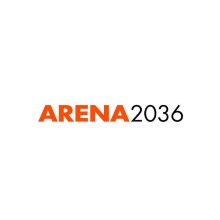ARENA2036
Research Campus
On September 25, 2012, the University of Stuttgart won the BMBF competition "Research Campus - Public-Private Partnership for Innovations" with its application "Active Research Environment for the Next Generation of Automobiles - ARENA2036”. The ARENA2036 research campus synergistically brings together researchers from institutes and companies on the topic of production and lightweight construction. They are researching the fundamentals and developing competitive production models for a flexible factory of the car of the future in 2036, the 150th anniversary of the automobile. Lightweight materials such as fiber composites will then be comparably easy to handle in series production as steel and aluminum are today. In addition, flexible production will replace the rigid production line and new ways of cooperation between humans and robots will be used in the factory.
Research Factory
Background
Production lines in industry are highly automated and efficient plants. In the case of car manufacturers, a vehicle is created in complex assembly and production steps. The challenges for the production of the future are:
- a high degree of variability in the products
- increasing individualization of mass production
- new construction methods and materials, including function-integrated lightweight components
- different drive systems
- (gasoline, diesel, natural gas, battery, hybrid, fuel cell)
- new interaction patterns between man and machine
- resource and energy efficiency in production
- rapid implementation of new technologies
Transformational production is the solution: away from line assembly, towards production concepts that can be transformed in days rather than months and at low cost.
Goals
New production concept according to "mutability”
- Methods, tools for planning/configuring/operating versatile production systems
- Adaptation of LeiFu lightweight manufacturing processes to production engineering requirements
- Technologies of novel robots as basic components of adaptive production systems
Research factory: consolidation of R (Research) and D (Development)
- 8 stations or modules
- integration in terms of control technology
- Planning, construction of research factory
Duration
July 2013 - June 2018




